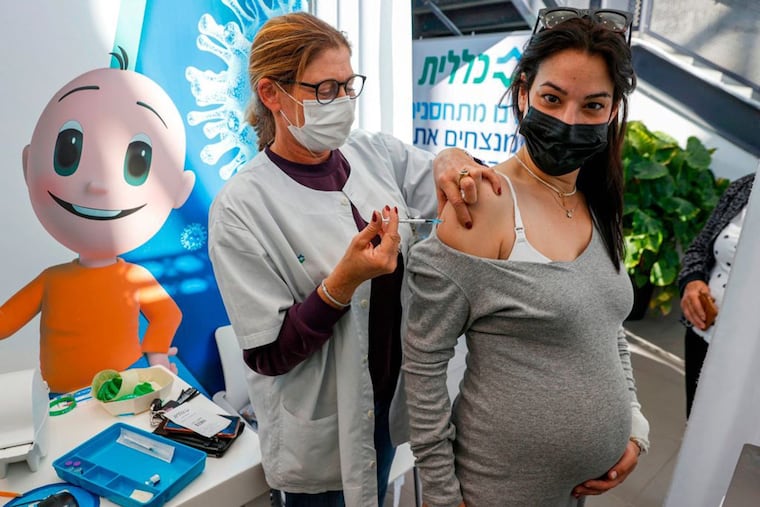COVID-19 vaccination does not increase the chance of miscarriage, study finds
Good news for pregnant people who are leery of getting vaccinated against COVID-19.

Another limited but reassuring study finds that COVID-19 vaccines do not increase the odds of miscarriage.
Like all studies to date of maternal vaccine safety, the new one, which focused on the first 20 weeks of pregnancy, did not compare vaccinated pregnant people with a control group of unvaccinated pregnant people. That would provide the most rigorous analysis.
Rather, the study, led by researchers at HealthPartners Institute in Minneapolis, used electronic medical records from eight big health systems to compare vaccinated people who miscarried with vaccinated people who had ongoing pregnancies on the corresponding date. It turned out that the odds of having received a shot in the 28 days before that date were the same for both groups.
“Despite limitations, these data can be used to inform vaccine recommendations and to counsel patients,” the researchers concluded in the study, published Wednesday in JAMA.
A miscarriage, medically called a spontaneous abortion, refers to a pregnancy loss before the 20th week of gestation. Miscarriage at this stage occurs in almost a third of pregnancies.
Although pregnant women were excluded from trials of the Moderna, Pfizer, and J&J vaccines, a small number of trial participants who unexpectedly got pregnant had no problems. More recent data from registries and studies have found the shots are safe and effective at protecting mother and newborn. Public health authorities and maternal-fetal medicine groups now recommend the shots. Not only is pregnancy a risk factor for severe COVID-19, but the highly contagious delta variant is fueling a small but noticeable increase in hospitalizations of unvaccinated pregnant people.
Still, only about 20% of expectant mothers follow the recommendation, mostly out of fear that their offspring will be harmed by unknown side effects.
The new data come from a collaboration between the CDC and the health systems. Among 105,446 pregnant people, there were 13,160 miscarriages and 92,286 ongoing pregnancies. A COVID-19 vaccine was received by 8% who had ongoing pregnancies, and 8.6% who had miscarriages. The results did not vary based on the vaccine brand or when the pregnancy was lost before 20 weeks.